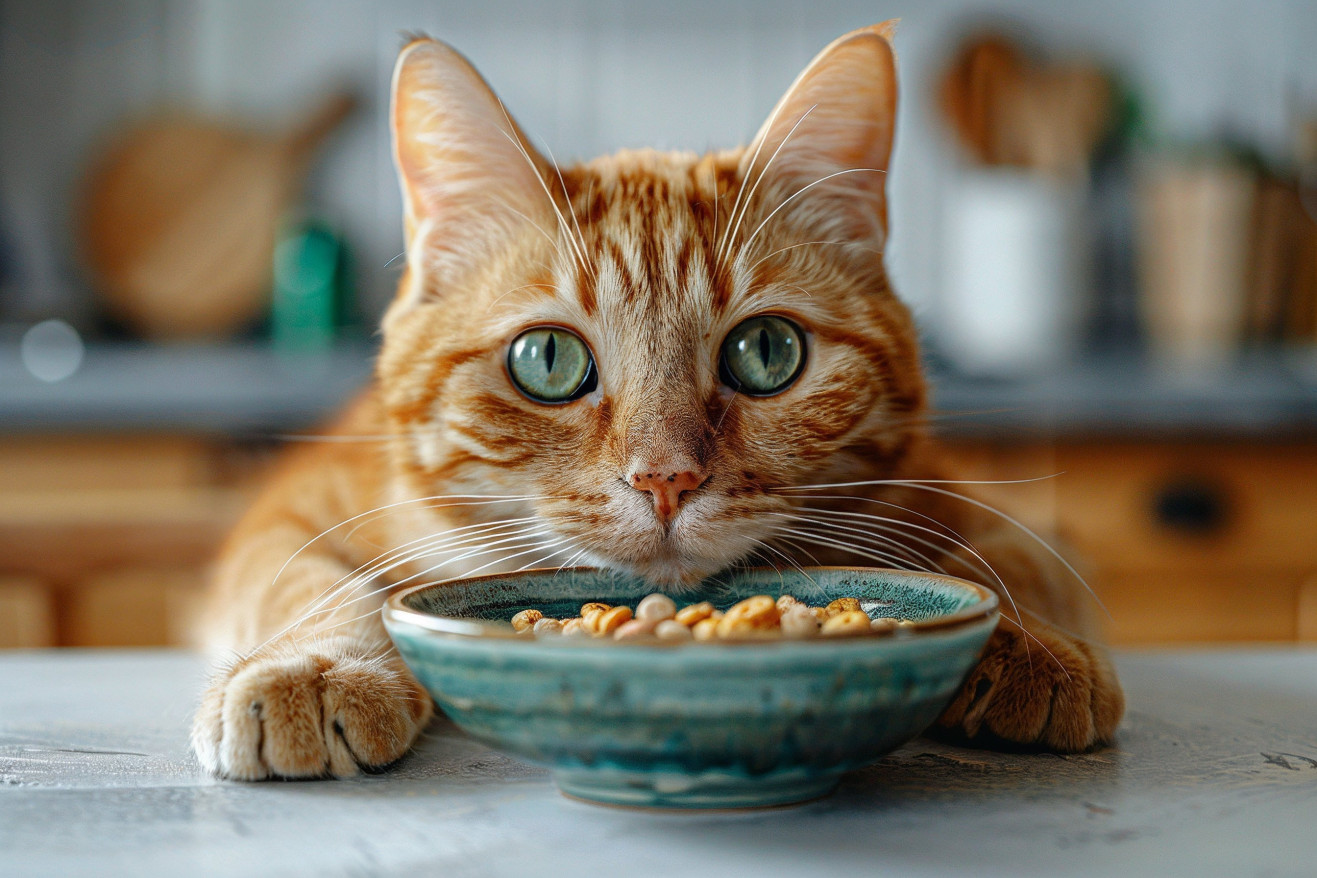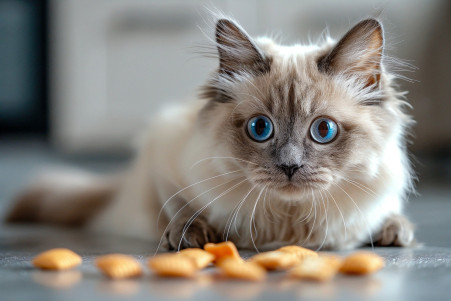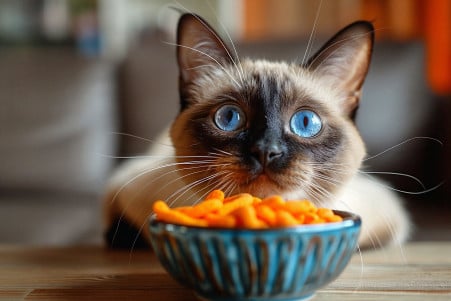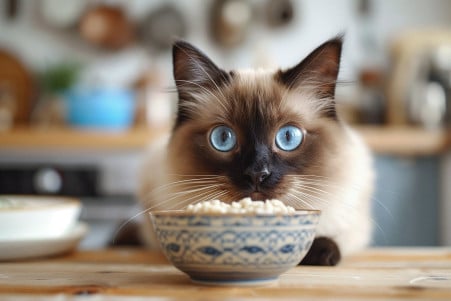Can Cats Eat Cheerios? Exploring the Risks and Benefits
18 April 2024 • Updated 18 April 2024

Cats are obligate carnivores, so you may be wondering whether human foods like Cheerios are actually safe and healthy for your furry feline friend to eat. While Cheerios themselves are non-toxic to cats, they provide no nutritional value and can lead to digestive issues like vomiting or diarrhea if consumed in large amounts. It's best to stick to a balanced, meat-based cat food rather than feeding human cereals as treats.
While the occasional Cheerio likely won't harm your cat, it's important to understand the potential risks and benefits of sharing our common snack foods with our feline companions. We'll dive into scientific research from veterinary nutritionists and animal behaviorists to examine the ideal diet for cats, why they have different nutritional needs than humans, and whether Cheerios or other human snacks have any place as an occasional cat treat.
Can cats eat Cheerios?
Cats' Nutritional Needs: Understanding Obligate Carnivores
Cats are obligate carnivores, which means they need to eat a diet that's mostly made up of animal-based proteins and fats, as Purina explains. Cats can only digest and metabolize carbohydrates to a certain extent, and Cheerios are high in carbs. As a result, cats need a balanced, meat-based diet to stay healthy and maintain their bodily functions, according to Pawlicy Advisor.
If cats are fed a diet that's high in carbs and low in protein, it can lead to a variety of health problems, including obesity, diabetes, and urinary tract issues, according to The Honest Kitchen. Although cats may enjoy eating Cheerios, they don't contain the essential nutrients, such as taurine, amino acids, and vitamins, that cats need to be healthy and thrive as obligate carnivores.
In contrast to humans, who are omnivores, cats are strict carnivores, and their bodies aren't equipped to digest and absorb the nutrients from plant-based foods that are high in carbohydrates. While an occasional Cheerio is unlikely to cause any harm, a diet that includes human foods like cereal can't meet a cat's nutritional needs.
Potential Dangers of Giving Cats Cheerios
Because Cheerios are high in sugar and carbohydrates, they can lead to weight gain and obesity in cats, according to Catster. The high carbohydrate content can also increase the likelihood of cats developing diabetes and other metabolic conditions. In addition, according to Animal Gator, eating large amounts of Cheerios can cause digestive issues such as vomiting, diarrhea, and gastrointestinal upset.
Cheerios don't have the nutrients that cats need, including protein, taurine, and certain vitamins and minerals, according to Catster. In addition, giving Cheerios to cats on a regular basis can cause them to fill up on empty calories and not eat a nutritionally complete diet, according to Pawlicy Advisor.
Why Chocolate Cheerios Are Bad for Cats
Chocolate Cheerios are made with cocoa, which is poisonous to cats because it contains caffeine and theobromine, according to Wedgewood Pharmacy. Chocolate consumption can cause serious side effects in cats, including vomiting, diarrhea, rapid heart rate, seizures, and even a coma, says PetMD.
The impact of chocolate poisoning in cats is based on the amount and type of chocolate that's eaten, with dark and baking chocolate posing the biggest risk, according to Vetster. Even small amounts of chocolate can be deadly to cats, especially when it comes to baking chocolate and cocoa beans. If a cat eats Chocolate Cheerios or any other chocolate-containing food, it's important to seek veterinary care immediately.
Healthier Snack Options for Cats
Even though Cheerios are not safe for cats, there are plenty of healthier snack options to choose from. According to Purina, cooked, unseasoned meats such as chicken or fish are great sources of protein that can be used as treats for cats. Low-lactose cheeses, eggs, and cooked vegetables such as sweet potatoes or pumpkin can also be given to cats in small amounts, according to The Honest Kitchen.
In general, commercial cat treats that are made with high-quality, meat-based ingredients are a better and more nutritious choice, according to Cats.com. However, it's important to remember that treats should never exceed 10% of a cat's daily calorie intake to avoid problems like obesity and other health conditions, according to Pawlicy Advisor. Still, by offering up appropriate, meat-based treats in moderation, cat owners can help meet their pet's desire for snacks while also ensuring they get the nutrition they need as obligate carnivores.
Conclusion: What Should Cats Eat?
While Cheerios are not poisonous to cats, they offer no nutritional value and can cause health problems if eaten in large quantities, according to Catster. Cats are obligate carnivores and need a diet that is high in animal-based proteins and fats to stay healthy, according to Purina and Pawlicy Advisor.
It’s important to make sure cats get a balanced diet that is rich in meat and low in carbs and sugar, according to The Honest Kitchen and Animal Gator. If you want to give cats treats, it’s best to stick to healthy options like cooked meats, low-lactose cheeses, or commercial cat treats in moderation, according to Pets at Home.
Work with a vet to get personalized diet advice and learn the right amount of treats to give your cat to make sure they stay as healthy and happy as possible.


